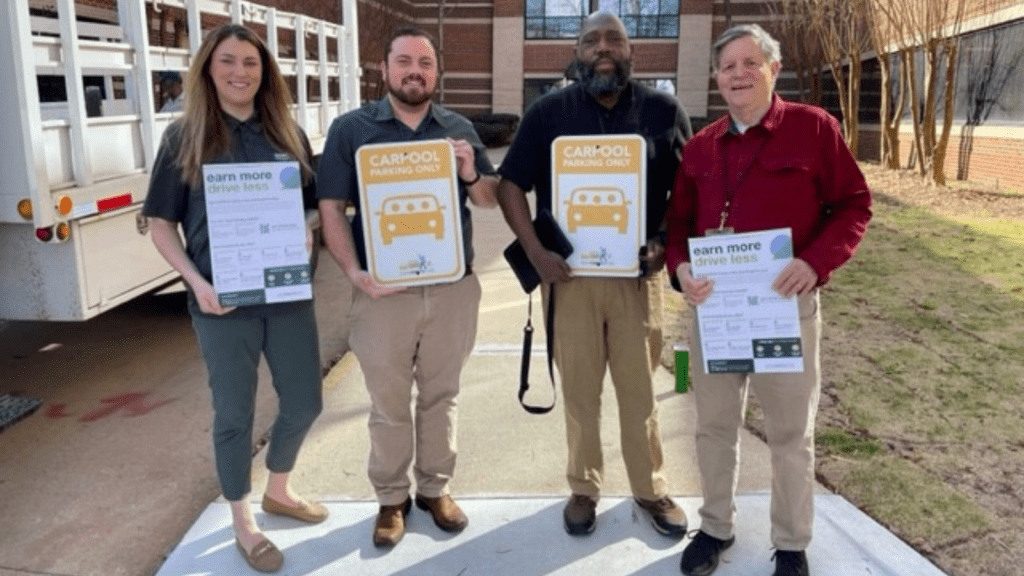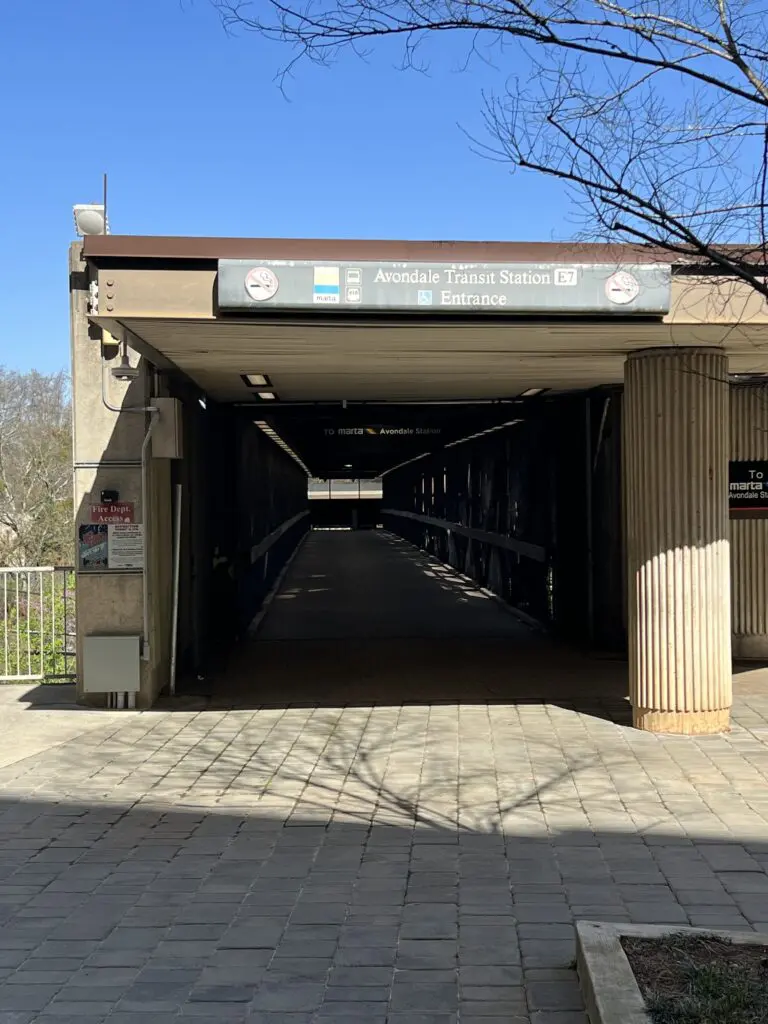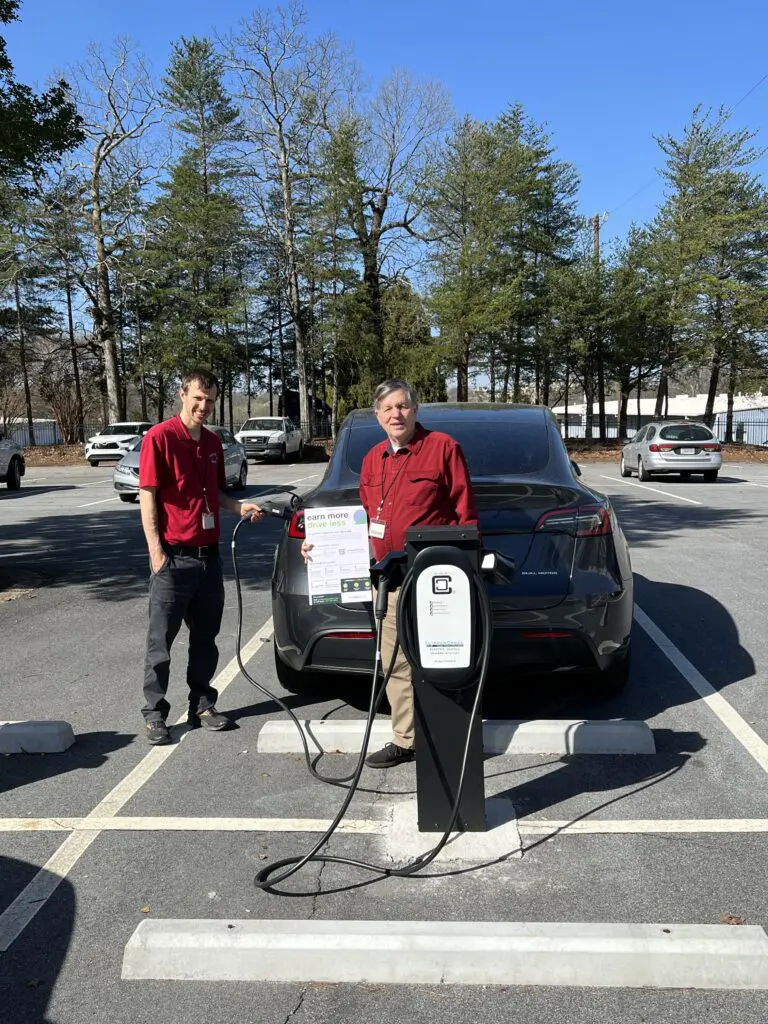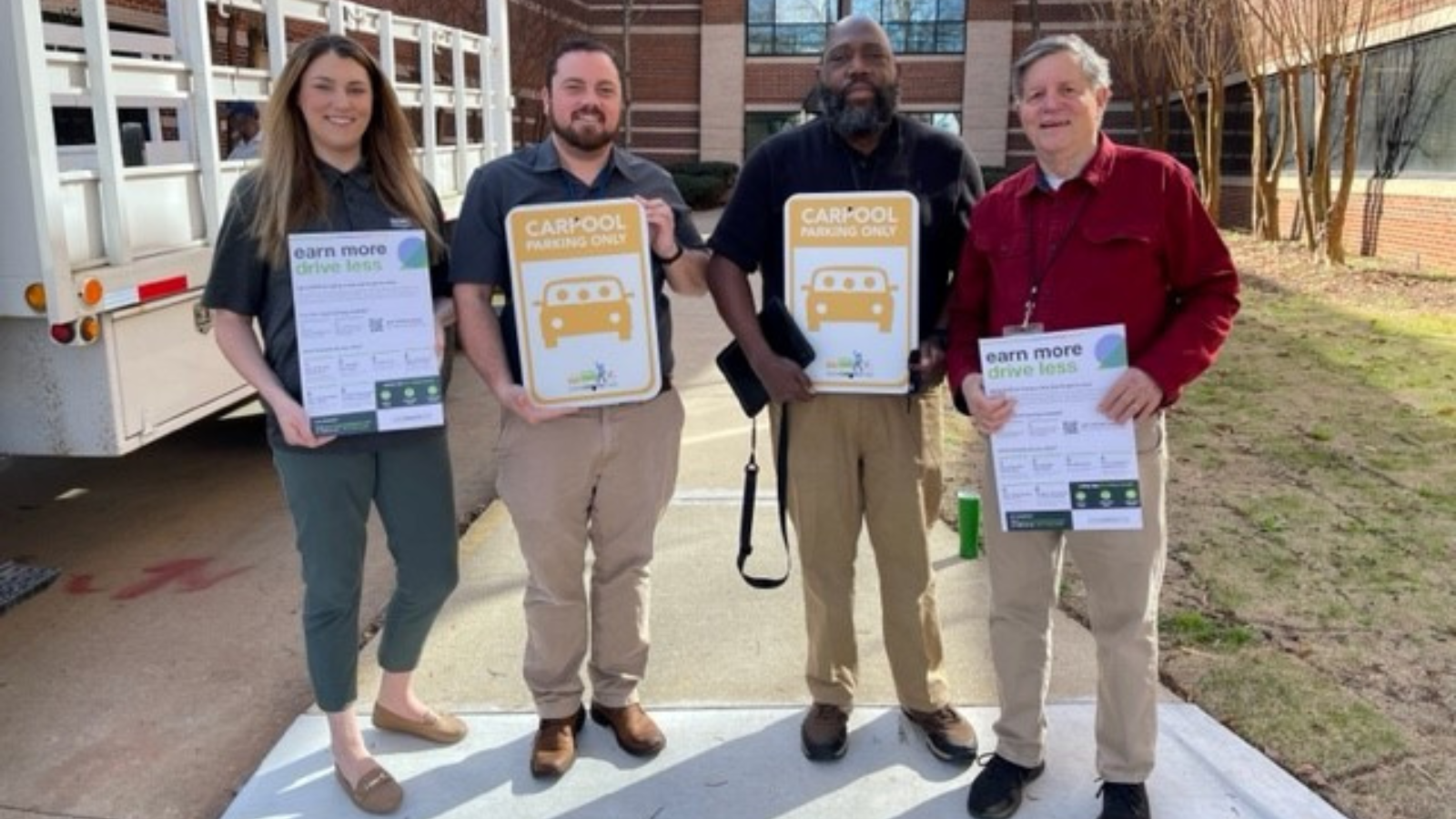In 2006, DeKalb County made a commitment through the Atlanta Regional Commission’s (ARC) Green Communities Program to reduce its environmental impact. Ever since, a taskforce of DeKalb County employees, including Gordon Kenna and Angelo Teachout, have been charged with implementing actionable measures to reduce the county government’s carbon footprint while fostering a healthier and more livable workplace.
Progress has been made to decrease carbon emissions through building and site portfolio efficiency and clean energy opportunities. To date, they’ve earned “Silver” status in the Green Communities program through innovative and environmentally friendly initiatives, including The Lights Out, Power Down energy conservation policy, Certified LEED buildings, The Green Fleet policy for county vehicles among others.

Every year the county’s taskforce seeks out practical solutions that tackle emerging workplace challenges while also raising the bar for sustainability. Kenna and Teachout also work in key roles in the county’s Public Works Department and Planning and Sustainability Department. Kenna is the Public Works Special Projects Coordinator and Teachout is the Sustainability Coordinator. So, this year’s focus—taking on transportation and commuting—is a welcome challenge.
Making Commuting a ‘Five-Star’ Experience for DeKalb Co. Employees
During the COVID-19 pandemic, most DeKalb County government buildings were closed to the public, and county employees pivoted to working from home. Since physical workplaces were disrupted for up to two years, on-site car emissions were at a near zero, a sure win for the sustainability taskforce but not a practical long-term option for many employees who administer the county’s public services. Now that DeKalb County’s buildings and offices have reopened for in-person services, employees have resumed commuting onsite.
Related Content: 3 Approaches To Revamping Your Organization’s Commuter Benefits For Hybrid Workers
“We all got used to working from home, and I’m sure people in Atlanta especially liked teleworking,” says Kenna. “Atlanta is known for a lot of things—great trees, a wonderful climate, and horrible traffic. So, we’re all trying to figure out ‘How can I get off that traffic treadmill?’”
Seizing the moment, the county’s sustainability taskforce reached out to long-time partner Georgia Commute Options (GCO) for expert advice on ways to improve commuting for their employees.

First, GCO Worksite Advisor Jenna Boettcher conducted a site assessment with the sustainability taskforce to understand nearby transportation access and opportunities for improvement. DeKalb County operates much of its administrative services out of the Sams Street building, which is conveniently adjacent to the Avondale MARTA station and located steps away from a PATH walking trail and a bikeway.
“It helps that DeKalb County has concentrated many service departments on Sams Street in Decatur nearby an array of travel options that are a lot better for the environment and better than driving to work alone,” says Boettcher. “Our goal with DeKalb has been to make commuting just as beneficial to DeKalb’s employees as telework proved to be over the past couple of years,” said Boettcher.
With help from GCO, the taskforce identified quick wins to enhance the commuting experience for their employees. To encourage shared rides among coworkers who live near each other, Kenna, Teachout and the sustainability taskforce added designated spaces for carpoolers. They also introduced electric vehicle (EV) chargers to accommodate zero-emission commutes.

“EV infrastructure is extremely effective in reducing greenhouse gas (GHG) emissions,” says Kenna. “So, we’ve added a lot of charging stations at the Sams Street building for employees with EVs so they can recharge while they’re onsite.”
These facility improvements have been bolstered by commuter perks and incentives. So far, the sustainability taskforce is working across HR and county management among other teams, departments and decision makers to tune up the commuter benefits program for county employees. This includes revamping their transit pass purchase program and adding subsidies to make sustainable commuting affordable and attractive. They’ve also partnered with GCO to promote access to regional commuter perks such as the Guaranteed Ride Home program through mygacommuteoptions.com.
Additionally, the sustainability taskforce has advocated for a more formalized telework policy for county employees to safeguard the flexibility, productivity and sustainability gains while more employees transition back onsite. Boettcher alongside GCO’s telework expert are in the final stages with the taskforce and county management to finalize that policy currently.
Next-Level Commuting Gives DeKalb a Real Shot at ‘Gold’
GCO applauds Kenna, Teachout and others on DeKalb County’s taskforce for their commitment to pushing sustainable efforts that benefit their employees and help the rest of us around the region breathe a little easier.
“Through this work, DeKalb County is doing their part to improve the work-life balance of its workforce while raising the bar for sustainability in our region,” says Roz Tucker, managing director for Georgia Commute Options and the Atlanta Regional Commission’s Mobility Services Department. “We’re rooting them on in their pursuit of a more livable, greener community.”
—
We’re here to help.
Georgia Commute Options offers surveying and data analysis services and much more to help employers determine, build and implement solutions for business challenges linked to commuting and transportation. Get started by emailing us: info@gacommuteoptions.com
